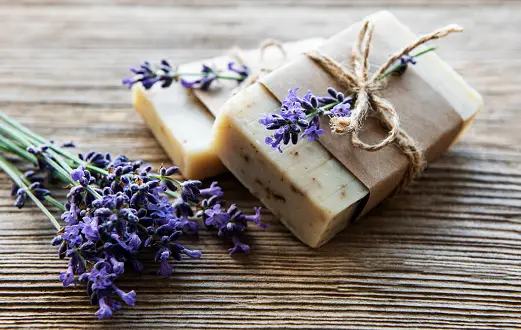In today’s world, the art of soap making has evolved into a blend of tradition and modern innovation. From ancient times to the present day, soap production has undergone remarkable changes, resulting in a diverse array of handcrafted soaps that cater to unique preferences and skin needs.
Evolution of Soap: From Ancient Times to Modern Day
Soap’s history can be traced back to ancient civilizations such as the Babylonians and Egyptians, who used a mixture of fats and wood ash to create rudimentary soaps. Over time, soap making techniques evolved, with the emergence of traditional methods like the Aleppo soap from Syria and Marseille soap from France.
The Industrial Revolution revolutionized soap production, introducing mass manufacturing techniques and synthetic additives. This era marked a significant shift from artisanal to commercial soap making.
Ingredients Used in Soap Today
Modern soap makers use a variety of ingredients to formulate unique products. Base oils like olive oil, coconut oil, and shea butter form the foundation of most soaps. Additives such as essential oils, botanicals, and exfoliants like oatmeal or coffee grounds are incorporated for fragrance and texture.
The Science Behind Soap Making
Soap making involves a chemical reaction called saponification, where fats and oils react with alkalis like sodium hydroxide (lye) to produce soap and glycerin. Understanding this process is crucial for creating quality soap bars.
Types of Soap
Handcrafted soaps come in different forms, including bar soaps, liquid soaps, and specialty variants like vegan or organic soaps. Each type offers unique benefits depending on personal preferences and skin types.
Benefits of Using Handmade Soap
Handmade soaps are cherished for their gentle cleansing properties and use of natural ingredients that nourish the skin. They often contain glycerin, a natural moisturizer that helps retain skin moisture.
Environmental Impact of Soap Production
Modern soap makers are increasingly adopting sustainable practices, such as using organic ingredients and reducing waste. Handcrafted soaps are biodegradable and eco-friendly alternatives to commercial products.
Popular Soap Making Methods
Soap can be made using various techniques, including the cold process, hot process, and melt-and-pour method. Each method offers distinct advantages in terms of simplicity and customization.
Steps to Make Soap at Home
For hobbyists and DIY enthusiasts, making soap at home can be a rewarding experience. The process involves careful measurement of ingredients, mixing, pouring into molds, and allowing the soap to cure for several weeks.
Safety Considerations in Soap Making
Safety is paramount in soap making due to the use of caustic substances like lye. Protective gear, proper ventilation, and adherence to safety guidelines are essential to prevent accidents.
Market Trends in Handcrafted Soap
The demand for artisanal soaps is on the rise, driven by consumer interest in natural skincare products. Artisanal soap brands are gaining popularity for their emphasis on quality ingredients and craftsmanship.
Tips for Starting a Soap Making Business
Entrepreneurs venturing into soap making should conduct thorough market research, comply with regulatory standards, and develop a strong brand identity. Effective marketing strategies can help reach target customers and build a loyal clientele.
Conclusion
the art of soap making has transformed into a thriving industry that celebrates creativity and craftsmanship. Handcrafted soaps offer a natural alternative to commercial products, catering to diverse skincare needs while promoting sustainability.
FAQs
Is it difficult to make soap at home?
Making soap requires careful handling of ingredients like lye, but with proper safety precautions and guidance, it can be a rewarding hobby.
What are the benefits of using handmade soap?
Handmade soaps are gentle on the skin, made with natural ingredients, and often contain moisturizing properties that commercial soaps may lack.
Can I customize the fragrance and ingredients in homemade soap?
Yes, homemade soap allows for complete customization of scents, colors, and additives according to personal preferences.
Are handcrafted soaps suitable for sensitive skin?
Many handcrafted soaps are formulated with gentle ingredients, making them suitable for sensitive skin types.
Is it profitable to start a soap making business?
With the growing demand for artisanal products, a well-planned soap making business can be profitable with the right approach to branding and marketing.
